duct size for vent hood
annemarie29
14 years ago
Related Stories
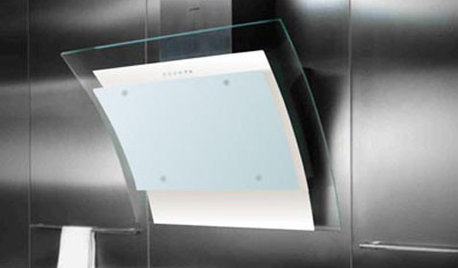
5 Stunning Modern Range Hoods
Today's kitchen range hoods can look like sleek sculptures. Here's what to look for when you go shopping for one
Full Story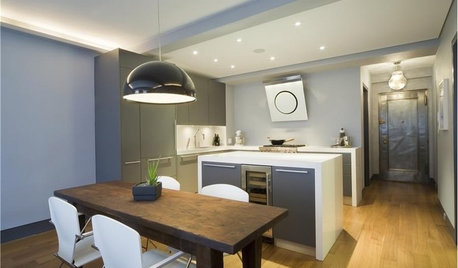
KITCHEN DESIGNHow to Choose the Right Hood Fan for Your Kitchen
Keep your kitchen clean and your home's air fresh by understanding all the options for ventilating via a hood fan
Full Story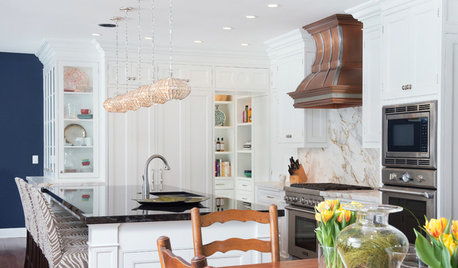
KITCHEN DESIGNWhat to Know When Choosing a Range Hood
Find out the types of kitchen range hoods available and the options for customized units
Full Story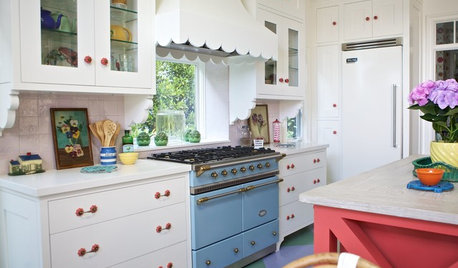
KITCHEN APPLIANCESThe Many Ways to Get Creative With Kitchen Hoods
Distinctive hood designs — in reclaimed barn wood, zinc, copper and more — are transforming the look of kitchens
Full Story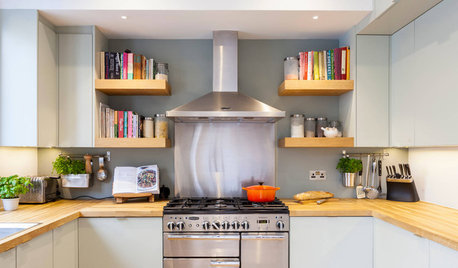
KITCHEN APPLIANCESWhat to Consider When Adding a Range Hood
Get to know the types, styles and why you may want to skip a hood altogether
Full Story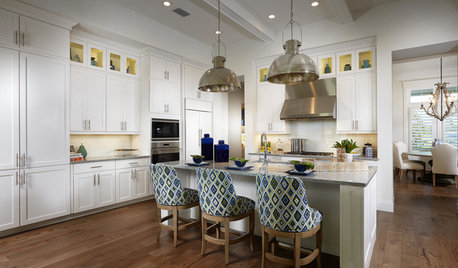
SHOP HOUZZShop Houzz: Large Kitchen Appliance Sale
Save up to 25% on modern ovens, ranges, cooktops, hoods, vents and more
Full Story0
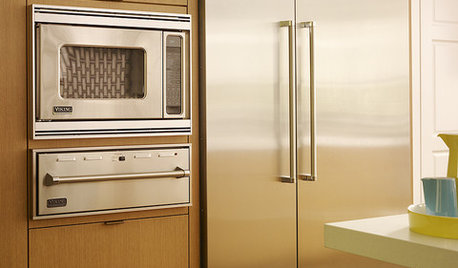
KITCHEN DESIGNA Cook’s 6 Tips for Buying Kitchen Appliances
An avid home chef answers tricky questions about choosing the right oven, stovetop, vent hood and more
Full Story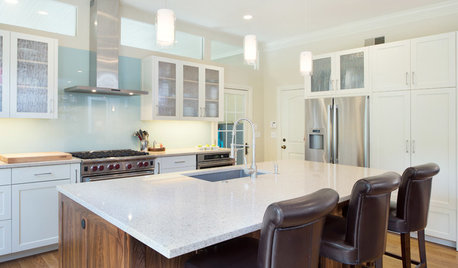
KITCHEN DESIGNModern Storage and Sunshine Scare Away the Monster in a Kansas Kitchen
New windows and all-white cabinetry lighten a kitchen that was once dominated by an oversize range hood and inefficient cabinets
Full Story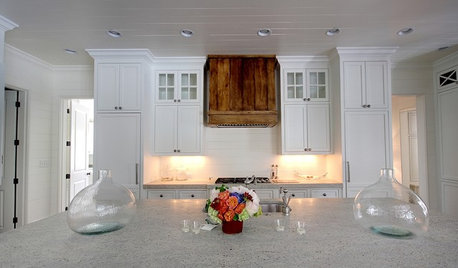
KITCHEN DESIGNWood Range Hoods Naturally Fit Kitchen Style
Bring warmth and beauty into the heart of your home with a range hood crafted from nature's bounty
Full Story





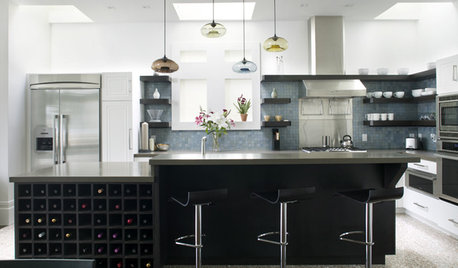

davidro1
friedajune
Related Professionals
Bethpage Kitchen & Bathroom Designers · Flint Kitchen & Bathroom Designers · Fox Lake Kitchen & Bathroom Designers · Highland Kitchen & Bathroom Designers · Magna Kitchen & Bathroom Designers · Pike Creek Valley Kitchen & Bathroom Designers · Minnetonka Mills Kitchen & Bathroom Remodelers · Chicago Ridge Kitchen & Bathroom Remodelers · Glendale Kitchen & Bathroom Remodelers · League City Kitchen & Bathroom Remodelers · Oklahoma City Kitchen & Bathroom Remodelers · Omaha Kitchen & Bathroom Remodelers · Saint Augustine Kitchen & Bathroom Remodelers · Westminster Kitchen & Bathroom Remodelers · Prospect Heights Cabinets & Cabinetrylive_wire_oak
annemarie29Original Author